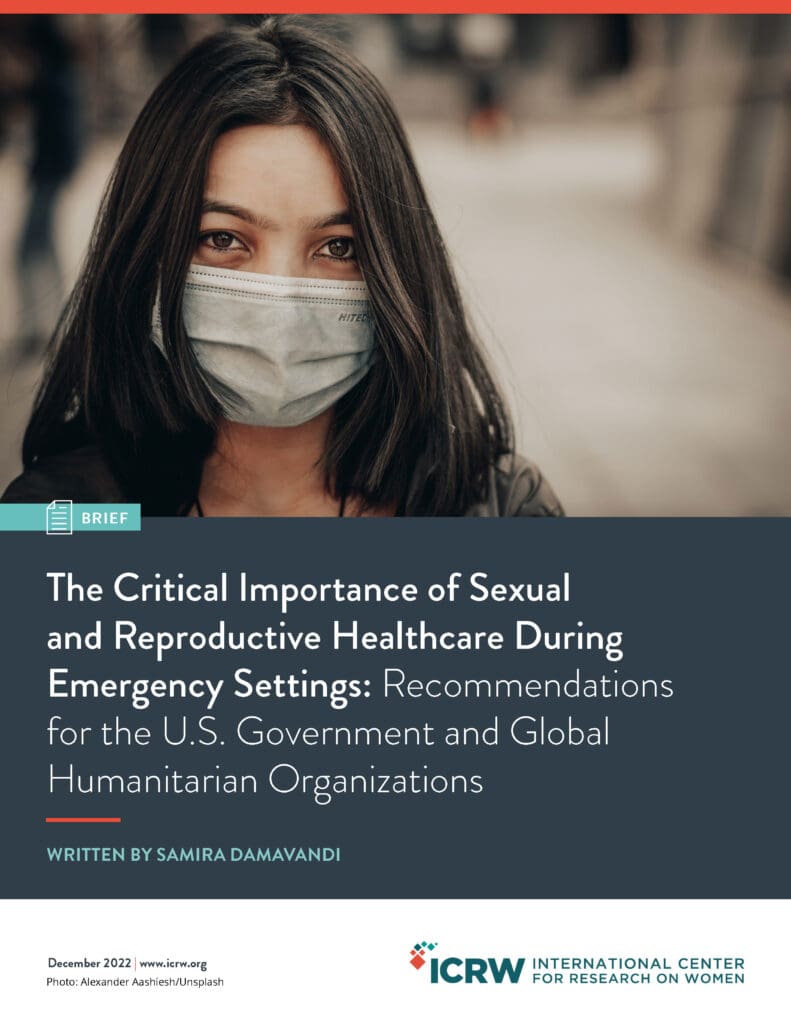
The Critical Importance of Sexual and Reproductive Healthcare During Emergency Settings
Advocacy, Sexual and Reproductive Health and Rights, Women Peace and Security
Recommendations for the U.S. Government and Global Humanitarian Organizations
2022
 In emergency settings, such as the armed conflict in Ukraine, the COVID-19 global pandemic, and climate-related natural disasters, access to sexual and reproductive health services are frequently disrupted or rendered nonexistent. Disruptions, restrictions, or lack of access can result in poorer health outcomes.
In emergency settings, such as the armed conflict in Ukraine, the COVID-19 global pandemic, and climate-related natural disasters, access to sexual and reproductive health services are frequently disrupted or rendered nonexistent. Disruptions, restrictions, or lack of access can result in poorer health outcomes.
Studies have shown that, during humanitarian crises, there is a rise in the rates of unintended pregnancies, unsafe abortions, sexually transmitted infections, pregnancy and obstetric complications, miscarriage, stillbirth, and maternal and newborn mortality. The worsening of sexual and reproductive health (SRH) outcomes can stem from several factors: a decrease in availability of and access to quality SRH, changes in people’s health-seeking behaviors, and a direct impact of certain viruses on pregnancy outcomes.
Various emergency settings have demonstrated that in times of crisis, health resources are concentrated toward the emergency, which leads to a reduction in resources allocated to SRH and preventative SRH education programs. The people least protected — refugees, displaced persons, conflict-affected populations, indigenous peoples, people in low-income settings — are likely to experience compounded difficulties in accessing quality SRH during a crisis.
This brief covers the impacts of emergencies on sexual and reproductive health services, the effects of service disruptions, and provide recommendations on best practices to mitigate them in the future.
Damavandi, S., (2022). The Critical Importance of Sexual and Reproductive Healthcare During Emergency Settings: Recommendations for the U.S. Government and Global Humanitarian Organizations. Washington D.C.: International Center for
Research on Women.
